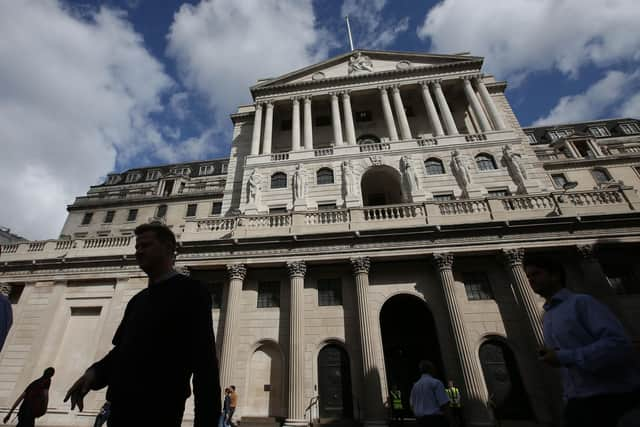Bank of England says big lenders could fail without hitting customers or taxpayer
The Bank of England (BoE) said that all eight of the major UK high street banks it had assessed would be able to fail without major knock-on effects, but it did find “shortcomings” in three of the banks’ plans.
“Today's publication shows that if a major UK bank failed today it could do so safely: remaining open and continuing to provide vital banking services to the economy,” the central bank noted.
Advertisement
Hide AdAdvertisement
Hide Ad“Shareholders and investors, not taxpayers, will be first in line to bear the costs, overcoming the ‘too big to fail’ problem.”
If proven true in an actual crisis, it could save the Treasury billions of pounds.
In the aftermath of the 2008 financial crash, the UK government was forced to use £137 billion of public money to prop up the banks, protecting shareholders and investors.
“Even despite that support, the disruption to the financial system contributed to the UK and global recession that followed. We cannot forget these lessons,” the BoE said.
It was this that sparked the need for the so-called resolvability tests which the central bank will now be performing every two years.


High street lenders will have to submit their plans to officials on what will happen in the event that they fail.
In the first such publication, the BoE rated several different parts of the banks’ plans. It found that there were no “deficiencies” or “substantive impediments” - the two worst assessments - in any of the plans.
Officials did identify “shortcomings” - the middle out of five scores - in how HSBC, Bank of Scotland owner Lloyds and Standard Chartered approached getting enough financial resources to be able to take the preferred path. It also found two further shortcomings in the plans of HSBC and Standard Chartered.
Advertisement
Hide AdAdvertisement
Hide AdThere were six banks whose plans contained “areas for further enhancement” - the second best assessment that the BoE could give.
These included two for Barclays, two for HSBC, one for Nationwide, two for NatWest, one for Standard Chartered, and three for Virgin Money.
Only Santander UK’s plan escaped unscathed from the assessment.
Comments
Want to join the conversation? Please or to comment on this article.